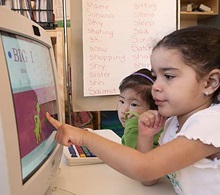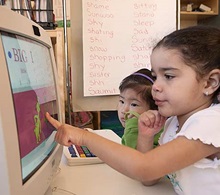 Most preschools will start accepting children at around age of 2, but that doesn’t mean your child is ready for preschool when they reach this age. Readiness for preschool has more to do with where your child is developmentally.
Most preschools will start accepting children at around age of 2, but that doesn’t mean your child is ready for preschool when they reach this age. Readiness for preschool has more to do with where your child is developmentally.
A few questions to ask yourself:
Is your child social, emotional, ready to participate in structured programs and do they work well with other children? At Premier Academy, we understand this is a tough decision. We have put together a list of questions to ask yourself. We also recommend speaking with others outside of the home such at your pediatrician, caregivers and family members.
Daily Schedule:
Preschools usually follow a predictable routine. Children tend to feel comfortable and in control when the same things happen at the same time each day. If your child doesn’t keep to a schedule and each day is different from the last, it can help to standardize their day a bit before starting preschool Omaha, Nebraska. This can include meals at a regular time, learning and reading and play time. Sticking to a standard bath time, nap time and bedtime is also helpful.
Group Activities:
Many preschool activities, like learning time, require that all the children in a class participate at the same time. Listening to story time, looking at shapes and colors and learning numbers require your child to listen and sit still. This can be very difficult for kids under 3 who enjoy exploring. If your child isn’t used to group activities, you can start introducing them yourself. We suggest structured classes such as tee ball, tumbling or even story time at your local library.
Independence:
Preschool requires children to have certain basic skills; most will want your child to be potty trained, for instance. Your child should also be able to take care of some other basic needs, like washing his hands after painting, eating lunch without assistance, and sleeping alone.
Stamina for preschool:
Most preschools offer half-day or full-day programs. There are art projects to do, field trips to take, and playgrounds to explore. Considering your child’s nap time is extremely important. Because preschool is structured and nap time is set at a specific time each day, if your child takes a mid-morning nap, it may not be the best time to start school. Building stamina can be an easy process. If your schedule is flexible, starting half-day may be the answer. Gradually increasing the length of their day sometimes helps build their tolerance of moving from activity to activity without being drowsy or cranky.


